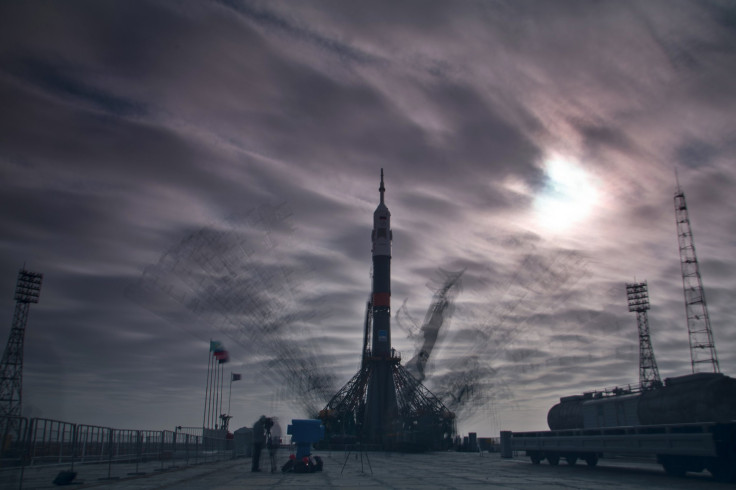Russia Threatens To Ban US From Using International Space Station, Bars Rocket Engines For Military Use Over Ukraine Crisis

Russia announced Tuesday that it would deny use of the International Space Station (ISS) to the U.S. after 2020 and ban the use of Russian-made rocket engines for launching U.S. military satellites, in an apparent response to American sanctions imposed on Russia over the crisis in Ukraine.
The U.S. announced last week that it would reject export licenses for many high-technology items sought by Russia, following its annexation of Crimea. In response, Dmitry Rogozin, Russia’s deputy prime minister, announced a series of punitive measures Tuesday, stating that U.S. participation is not necessary for the continued use of the space station. While Russia and the U.S. have managed to cooperate on space exploration projects and in maintaining the $100 billion orbiting laboratory despite clashes on various foreign policy issues, the Ukraine crisis, which has been called the worst stand-off between the West and Russia since the end of the Cold War, threatens to endanger the arrangement.
“These sanctions are out of place and inappropriate,” United Press International quoted Rogozin as saying. “We have enough of our own problems.”
Although the space station is manned by both American and Russian crew members, the only way to reach the ISS is on Russia's Soyuz spacecraft, which will no longer welcome American astronauts after 2020 if Moscow follows through with its threat.
“The Russian segment can exist independently from the American one. The U.S. one cannot,” Rogozin said, adding: “After 2020, we would like to divert these funds [used for ISS] to more promising space projects.”
While the U.S. is keen on keeping the ISS operational until 2024, four years beyond its original target, Rogozin disagreed with the plan and said that Washington would not be allowed to use Russian-made rocket engines, including the NK-33 and RD-180, which the U.S. has used to deliver its military satellites into orbit.
RD-180 engines, which power the Atlas V rocket built by United Launch Alliance, are also used to launch a series of U.S. government satellites including top-secret military spy satellites such as NROL-67 and science satellites for NASA like the Curiosity Mars rover and MAVEN Mars orbiter, Universe Today reported.
“We are ready to deliver these engines, but on one condition: that they will not be used to launch military satellites,” the Telegraph quoted Rogozin as saying.
© Copyright IBTimes 2024. All rights reserved.






















